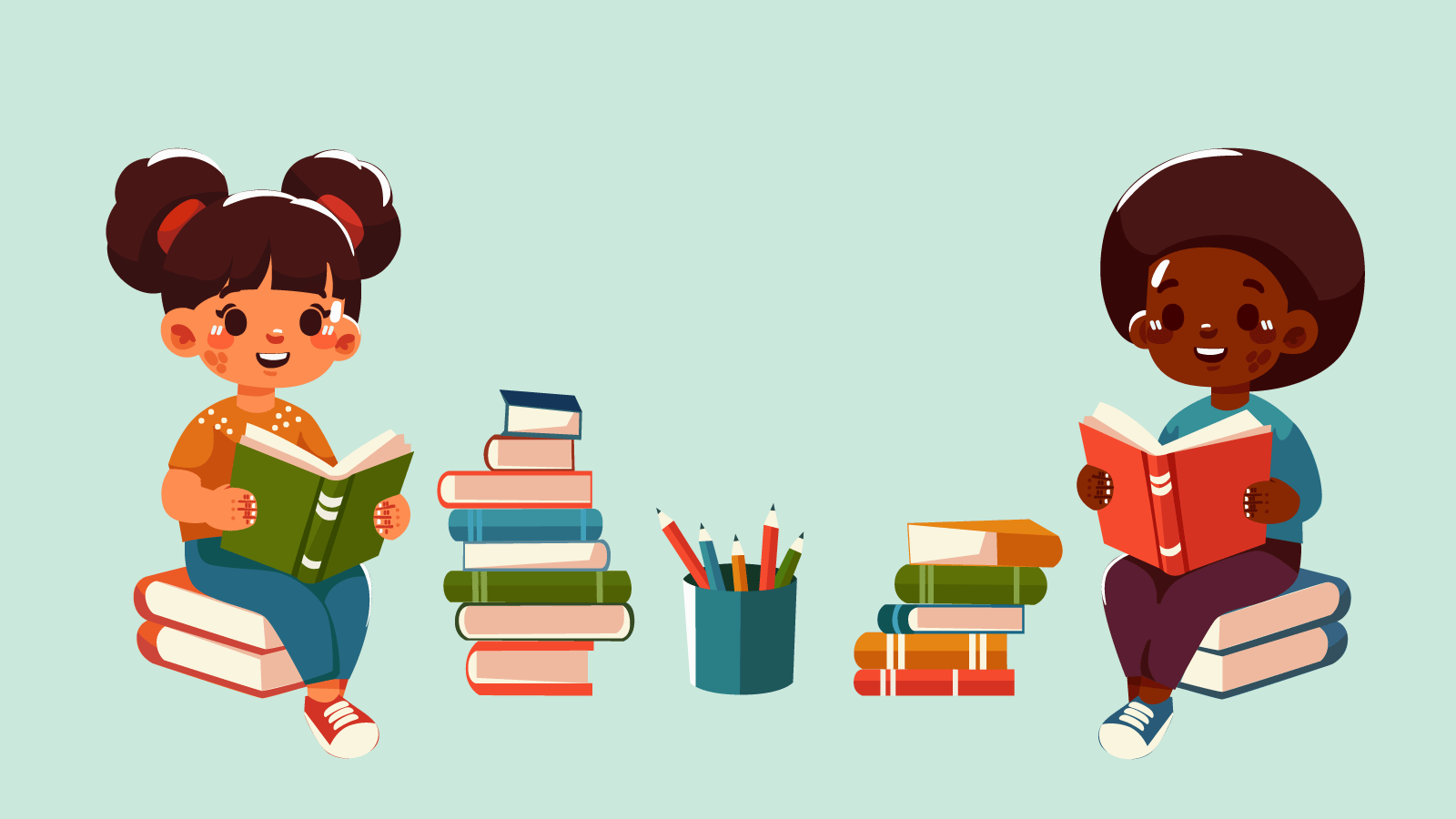Moral lesson understanding Reading Comprehension Worksheets for Ages 3-8
5 filtered results
-
From - To
Discover the importance of moral lessons in children's literature with our engaging Reading Comprehension Worksheets for ages 3-8. Designed to enhance understanding and critical thinking, these worksheets encourage young learners to explore valuable life lessons embedded in stories. Each activity promotes reading comprehension while fostering discussions about honesty, friendship, kindness, and responsibility. By analyzing characters' choices and consequences, children will develop empathy and ethical reasoning skills. Ideal for classroom or home use, these worksheets empower educators and parents to cultivate a love for reading and instill essential moral values in their little ones. Start nurturing future moral thinkers today!
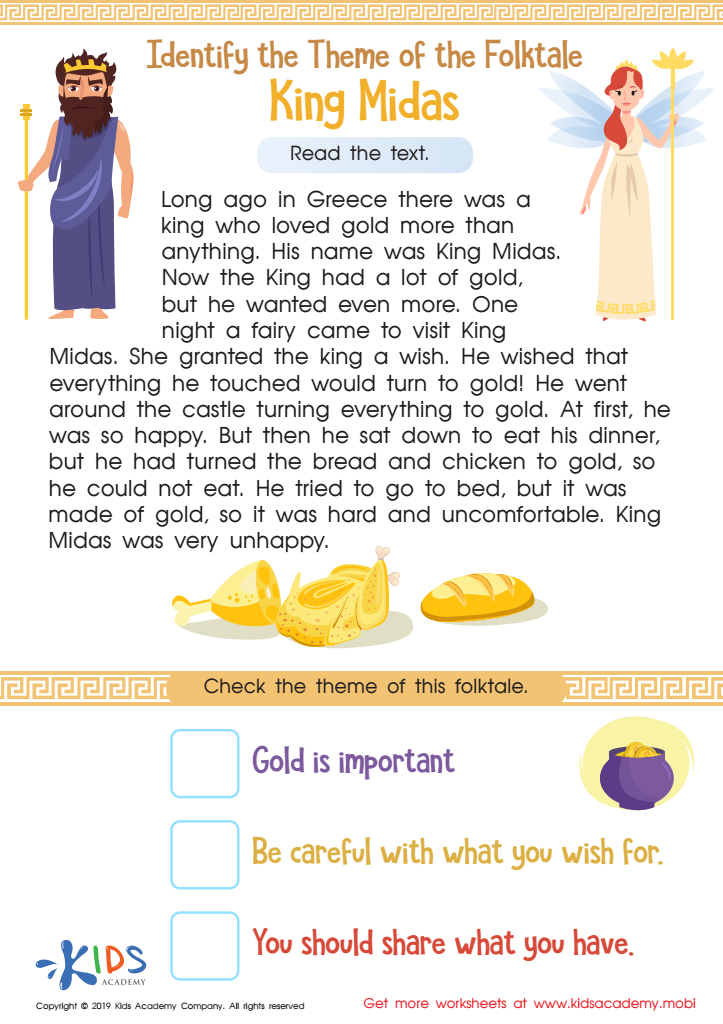

King Midas Worksheet
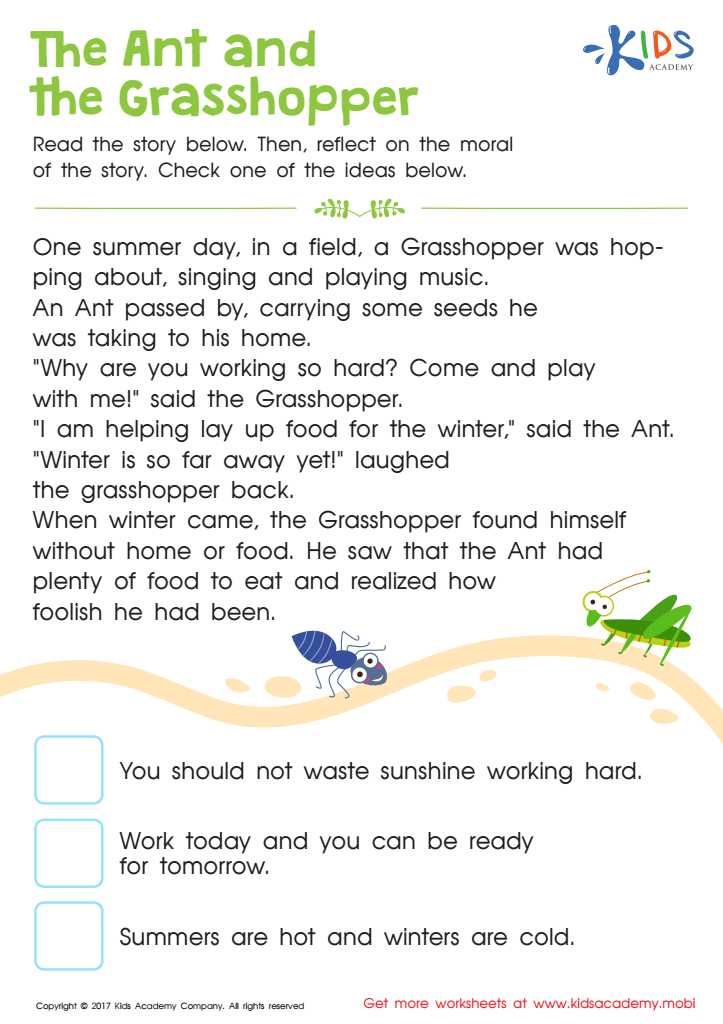

The Ant and The Grasshopper Printable
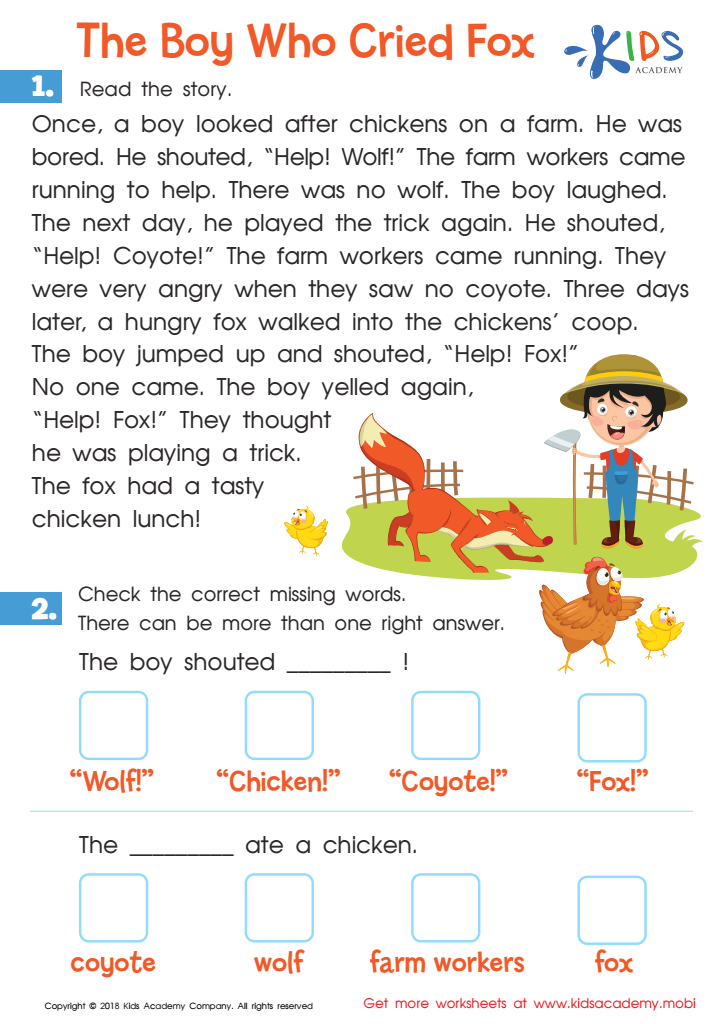

The Boy Who Cried Fox Worksheet
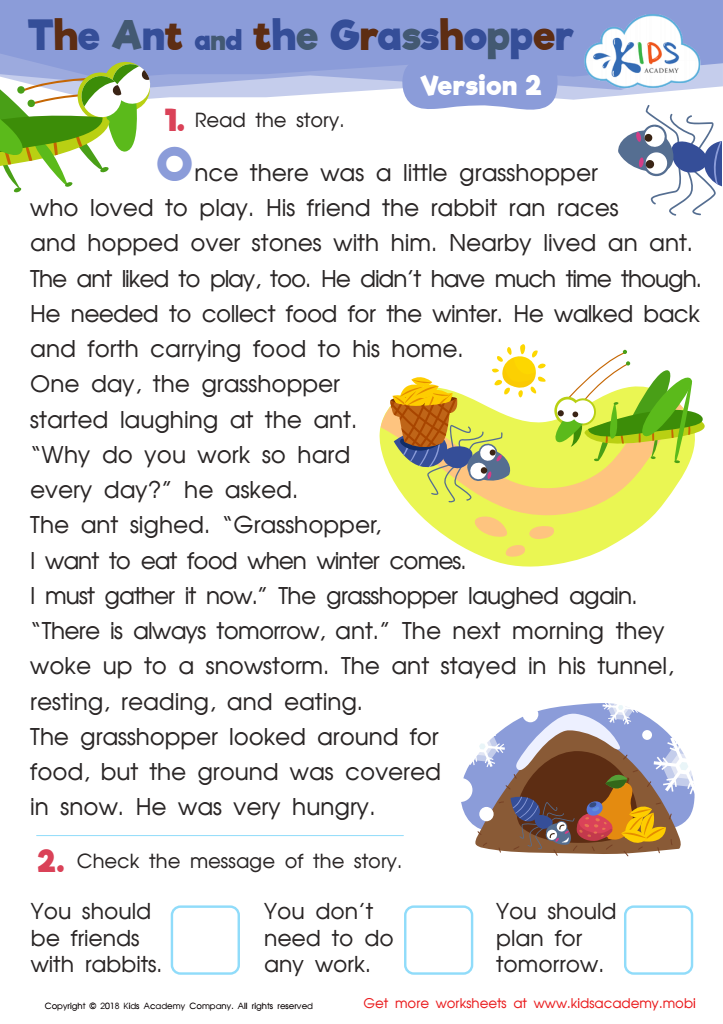

The Ant and The Grasshopper Version 2 Worksheet
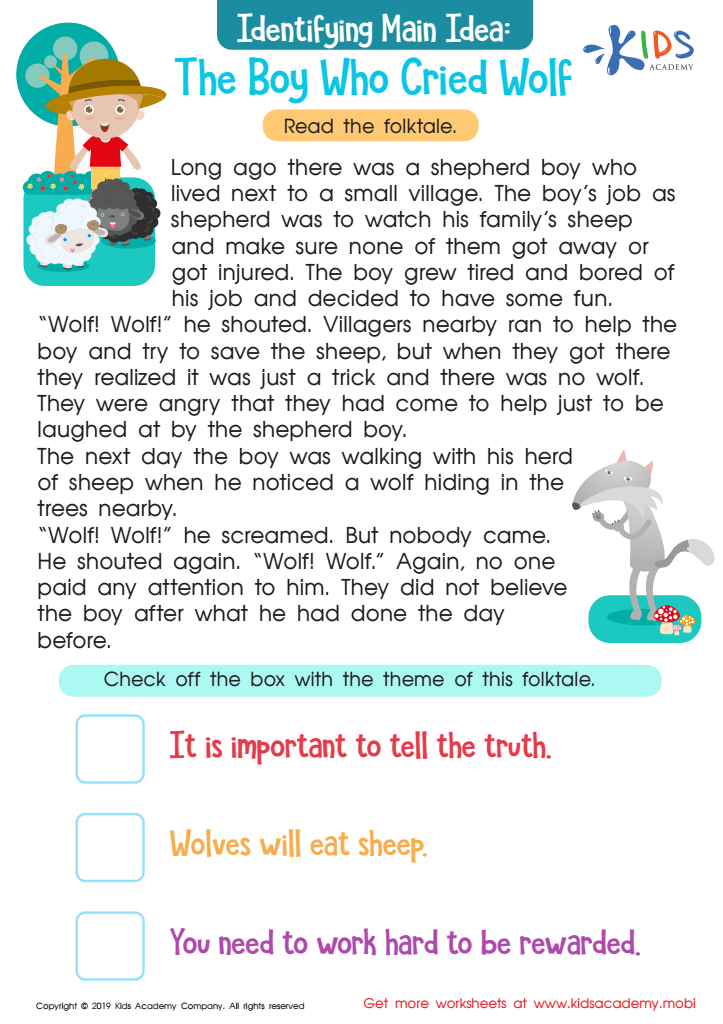

The Boy Who Cried Wolf Part 2 Worksheet
Understanding moral lessons through reading comprehension is crucial for children aged 3-8, as it lays the foundation for their social and emotional development. At this age, children are highly receptive to stories, which serve as powerful tools for teaching values like empathy, kindness, and respect. When parents and teachers foster discussions about moral lessons found in stories, they help children develop critical thinking skills, as kids learn to analyze characters' choices and the consequences of actions.
Moral understanding nurtures a child's ability to identify right from wrong and encourages them to apply these values in their own lives. This cognitive process also aids in reading comprehension; as children reflect on the story's message, they engage more deeply with the narrative, enhancing their overall understanding of text.
Furthermore, when moral lessons are a focal point in reading, children are more likely to relate to others, aiding in their social interactions. They learn to communicate their feelings and understand different perspectives. For these reasons, parents and teachers play a pivotal role in guiding discussions around moral implications in literature, thus enriching not only reading skills but also character development in young children.

 Assign to My Students
Assign to My Students


